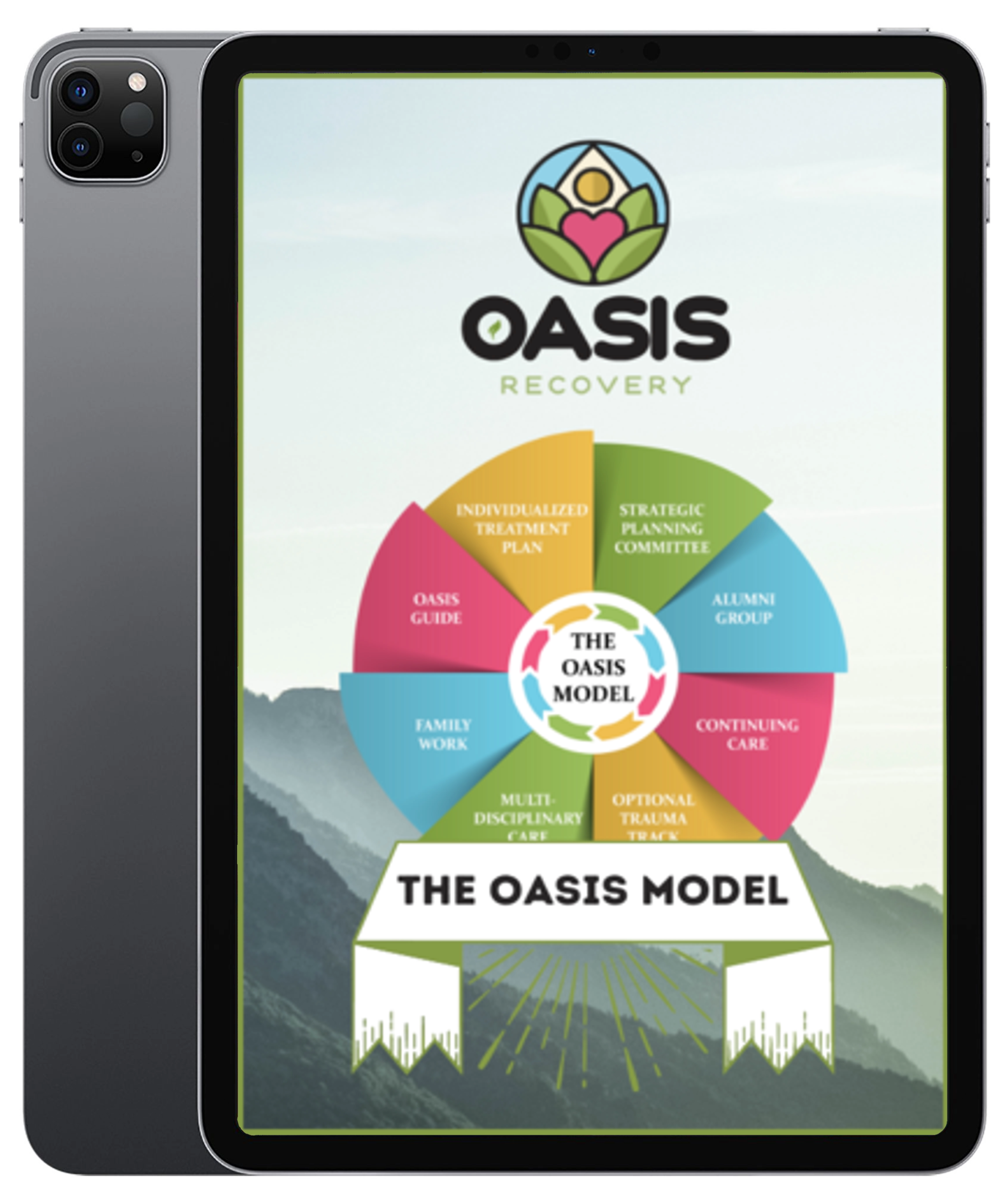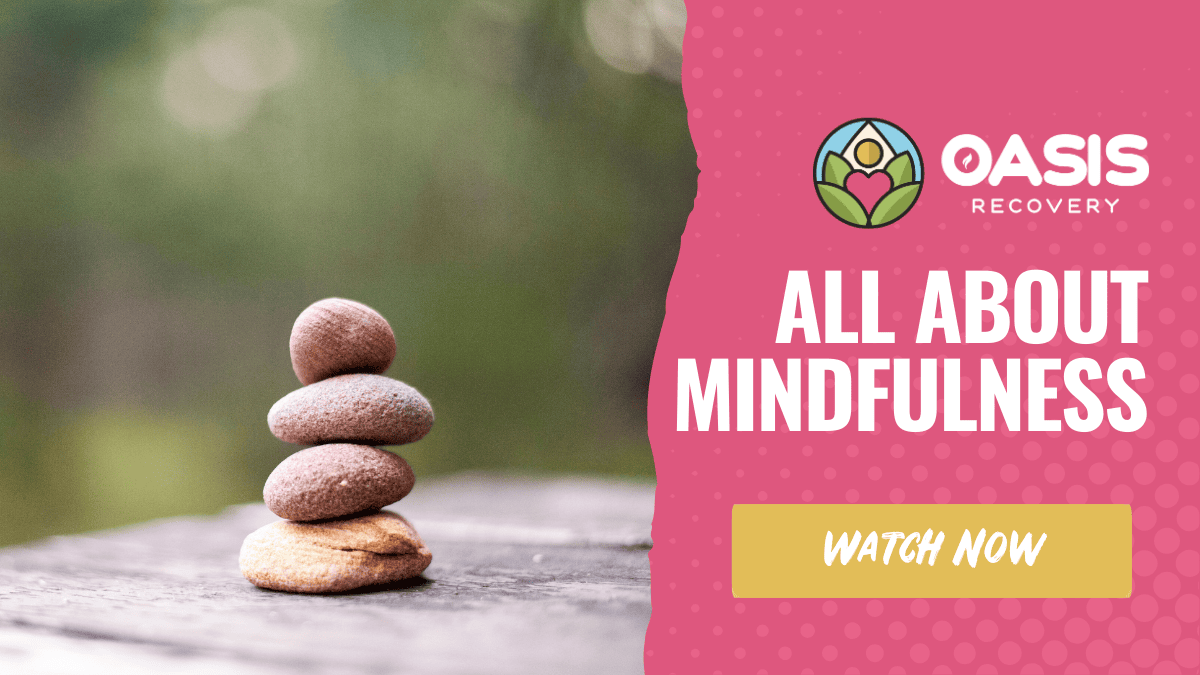Mindfulness-Based Therapy
In Asheville
In our fast-paced world with so much stimulation and stress, finding stillness has never been more difficult–or more important. Although mindful therapy practices, such as yoga and meditation, have been used for centuries across the globe, new research data is frequently being released on the proven positive outcomes and benefits of mindfulness techniques when applied to addiction and cravings, relapse prevention, mental health, and overall brain function and well-being.
What is Mindfulness?
“Mindfulness” has become a buzzword in the past few years and for good reason. At its core, mindfulness is presence. It is the practice of cultivating moment-to-moment awareness of thoughts, feelings, and surroundings without judgment. This can be done in any number of ways, and thousands of exercises have been created to help facilitate this practice. Many exercises include meditation, breathing exercises, body scans, and embodied movement. Others focus on the senses: smell, touch, taste, sight, and sound. All mindfulness based therapy practices have a common theme: to slow down, drop into our bodies, and witness the experience.
Benefits of Mindfulness
Being mindful reduces stress, helps us succeed in performing daily tasks and social functioning, and enables us to gain awareness through observing our own minds. In doing so, we become more motivated to care for others. For some, mindfulness can be used as a way to better get to know oneself.
Whether you’re interested in mindfulness based therapy to develop more empathy for others, to improve your problem solving skills, to become a more decisive decision maker, to be more present, or to learn how to cope with difficult emotions, mindfulness practices can help. Research has shown that mindfulness based therapy can alter the structure of the brain for the better, boosting physical and mental health and well-being in general. It can help you deal with your anxiety, enhance self-awareness, and help you identify and deal with emotions that are often not based in reality.
How does Mindfulness-Based Therapy Work in Addiction Recovery?
Our brains become conditioned in the same way that a muscle would when you exercise it; through practice and experience. Those that are struggling with addiction have unintentionally conditioned their brains in the past to act on certain thoughts and behaviors that drove their addiction. These repetitive thought processes strengthen and define pathways within the brain that work against staying one that is trying to stay mindful. Meditation and other mindfulness based therapy exercises work in a similar fashion, yet empower you to change your brain chemistry in ways that result in increased control, awareness, and contentment.
A mindfulness based approach to addiction recovery treats the whole person, not just the substance abuse. Mindfulness has many health benefits, and has been proven to significantly reduce anxiety, stress reactivity, distraction, and depression, all of which can be seen as roadblocks to recovery. Mindfulness based therapy has been clinically proven to increase self-compassion, focus, cognition, heart and immune system health, rest, resilience, feelings of connection, sense of belonging, and more.
Mindful Therapy Groups
Although the knowledge of mindfulness can be acquired through reading literature, listening to guided audios, downloading apps, and watching videos, group practice often yields better results. As mindfulness practices have become more popular, mindful therapy groups have begun to pop up not only as recreational meetups, but also within the workplace, schools, community centers, and gyms.
When we engage in group mindfulness, we must feel connected in order for it to sustain and maintain our commitment. We must possess a sense of connection and ownership of our decisions and actions while also experiencing support, development of skills, and personal growth. Mindful therapy groups help encourage this type of connection.
Mindful therapy groups are also helpful because they help provide motivation for others that are also participating in mindfulness based exercises. It can be helpful to have other people present during a mindfulness session, particularly if we are prone to distraction. Having others around during mindfulness activities provides a sense of connection that leaves participants feeling like they are taking on mindfulness as a team, rather than alone, which can be daunting. When we commit to others in a mindful therapy group, we may be more likely to show up and continue our practice. Some examples of mindful group therapy activities are:
- Mindful Listening: Listen to a song as a group and notice the rhythm, song lyrics, instrumentation, and any other details you observe. Notice how the song makes you feel. After the song is over, play it again one or two more times, and then see what you notice. After you have listened through a few more times, go around and share what you noticed as a group.
- Group Meditation: Group meditations are among the most effective group recovery activities. Meditating in unison with others can be motivating and inspiring. Individuals who have studied mediation independently might feel a unique energy as they meditate with others. It may also bring about challenges that will strengthen your ability to meditate mindfully, such as avoiding distractions from other people, such as coughing, sniffling, or shifting in their seat. Group meditation can be an excellent chance to develop the habit of returning to breath after being pulled away by distractions. You may decide how long the meditation lasts, and afterwards you may discuss your insights or benefits.
- Balancing: Prior to beginning this exercise, guide the group to take a few deep, slow, grounding breaths. Then ask everyone in the group to balance on one foot and be mindful of the sensations in their foot, ankle, legs, and entire body while they attempt to maintain their balance. Ask them to notice any trembling or shaking, as well as any thoughts or fears that come to mind, and to take a few deep breaths. After a few minutes, allow everyone to share their experience.
Mindfulness Exercises
While mindfulness exercises can be highly beneficial in a group setting, solo mindfulness practice can cultivate awareness of one’s thoughts, feelings, and surroundings without judgment. For those struggling with addiction, when it comes to relapse prevention strategies, mindfulness can help increase awareness and recognition of negative thoughts, feelings, and triggers that may lead to relapse. They also give us the tools to pause and engage in clear thinking rather than impulsive action. Below are some mindfulness practices that you can try on your own now:
- Guided Body Scan: A body scan performed while sitting or lying down is a simple method for reconnecting with your body. They can be performed by someone alone or via guided meditation. Many of these body scans are accessible through guided meditation apps or the internet. Typically, you start at the top of your head and move slowly down your body until you reach your feet, taking note of any discomfort or other sensations as you go. Without judgment, you will observe what your body feels like while practicing non-judgmental awareness.
- 5-4-3-2-1: The 5-4-3-2-1 exercise is helpful for becoming present in your body and honing your five senses. It goes as follows:
5 – Name five things you can see
4 – Name four things you can touch
3 – Name three things you can hear
2 – Name two things you can smell
1 – Name one thing you can taste
This is a simple exercise for regaining a sense of being in your own body.
3. Coloring: When we color mindfully, we focus on how we choose and apply colors to a design, bringing us to the present moment. During mindful coloring, we let go of any concerns about tomorrow or yesterday, or what we will do when we are finished. We focus solely on the patterns, colors, and skills required to finish a coloring page.
4. Solve a Puzzle: Puzzles are a fantastic way to enhance cognitive ability, but they can also be utilized as a mindfulness exercise. They require focus, attention to detail, and mindfulness, while also being enjoyable and rewarding. Different types of puzzles include:
- Crossword Puzzles
- Jigsaw Puzzles
- Riddles
- Word Searches
- Find the Difference Images
Mindful Therapy at Oasis Recovery
There are many health advantages to practicing mindful therapy as it has been scientifically confirmed to decrease anxiety, stress reactivity, distraction, and sadness, all of which can prevent recovery. Self-compassion, focus, cognition, heart and immunologic health, rest, resilience, connections, and a sense of belonging are all examples of the positive effects of mindfulness.
Addiction treatment can be provided in a safe and comfortable environment at Oasis Recovery if you or a loved one would like to participate in mindfulness activities. Our team of expert professionals provides a wide range of services and amenities to meet your specific needs. If you or a loved one wants to participate in mindful therapy group activities as part of their addiction treatment, we can help you with that too. Contact an addiction specialist at Oasis Recovery Center today to learn more about how we can assist you in your recovery journey.
Oasis Is Here For You
If you or a loved one could benefit from addiction treatment, the experts at Oasis Recovery are here for you. Between our various treatment programs, therapies, and supportive community, we provide the quality care that you deserve. To learn more about all we have to offer, download our free eBook today. You no longer have to struggle with addiction alone.




